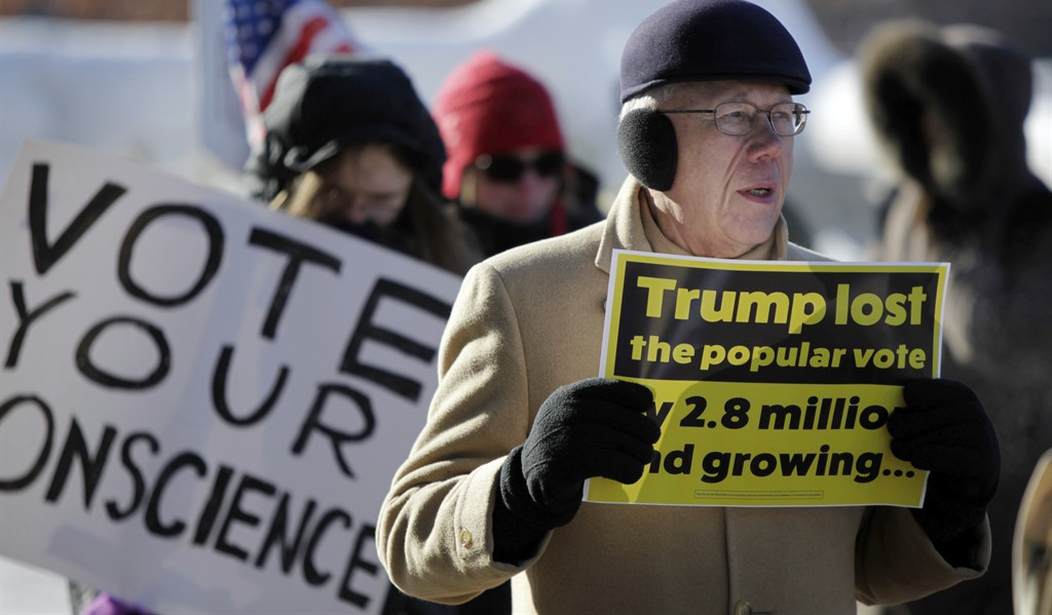People often refer to the United States as a democracy, but technically speaking, that’s not true. It’s a republic.
Big deal, you say? If you care about your rights, it is. The Founding Fathers knew their history well, so they knew better than to establish the U.S. as a democracy.
In a democracy, of course, the majority rules. That’s all well and good for the majority, but what about the minority? Don’t they have rights that deserve respect?
Of course they do. Which is why a democracy won’t cut it. As the saying goes, a democracy is two wolves and a sheep voting on what’s for dinner.
The founders were determined to forestall the inherent dangers of what James Madison called “the tyranny of the majority.” So they constructed something more lasting: a republic. Something with checks and balances. A system of government carefully balanced to safeguard the rights of both the majority and the minority.
That led, most notably, to the bicameral structure of our legislative branch. We have a House of Representatives, where the number of members is greater for more populous states (which obviously favors those states), and the Senate, where every state from Rhode Island and Alaska to California and New York have exactly two representatives (which keeps less-populated states from being steamrolled).
Being a republic, we also don’t pick our president through a direct, majority-take-all vote. We have an Electoral College. And a lot of liberals don’t like that.
Their attacks on the College are nothing new, but the defeat of Hillary Clinton in 2016 renewed their fury. After all, as they never tire of pointing out, Clinton captured more of the popular vote than Donald Trump did. They see the Electoral College as an impediment to their political victories, therefore it’s got to go.
Recommended
The latest attack comes via new lawsuits filed in federal courts in four states (Massachusetts, California, South Carolina and Texas).“Under the winner-take-all system, U.S. citizens have been denied their constitutional right to an equal vote in presidential elections,” said David Boies, an attorney who represented former Vice President Al Gore in the 2000 election.
I doubt Boies and his fellow attorneys are really ignorant of why we have an Electoral College. But it’s important that the rest of us know.
“The Electoral College is a very carefully considered structure the Framers of the Constitution set up to balance the competing interests of large and small states,” writes Hans von Spakovsky, a former member of the Federal Election Commission. “It prevents candidates from wining an election by focusing only on high-population urban centers (the big cities), ignoring smaller states and the more rural areas of the country – the places that progressives and media elites consider flyover country.”
Most people who watch the election returns know that a candidate must secure 270 electoral votes to win. That’s because there are 538 votes altogether. As the website for the National Archives notes, “Your state’s entitled allotment of electors equals the number of members in its Congressional delegation: one for each member in the House of Representatives plus two for your Senators.”
In short, the founders were looking out for the people in “flyover country” long before there were airplanes to fly over them.
Were it not for the Electoral College, presidential candidates could act as if many Americans don’t even exist. They could simply campaign in a small handful of states with big populations. Who would care what the people in Iowa think? Or Wyoming? Or any number of other states with smaller populations?
The people in “flyover country” don’t get enough attention as it is, but without the Electoral College, they’d be completely at the mercy of the majority.
And let’s face it – that’s often not a great place to be. As the Austrian political philosopherErik von Kuehnelt-Leddihn dryly observed in his book “Leftism”, the crucifixion of Jesus was “a democratic event.”
What the wolves want matters, but so does what the sheep wants. The Electoral College ensures that no one winds up on the menu.
























Join the conversation as a VIP Member